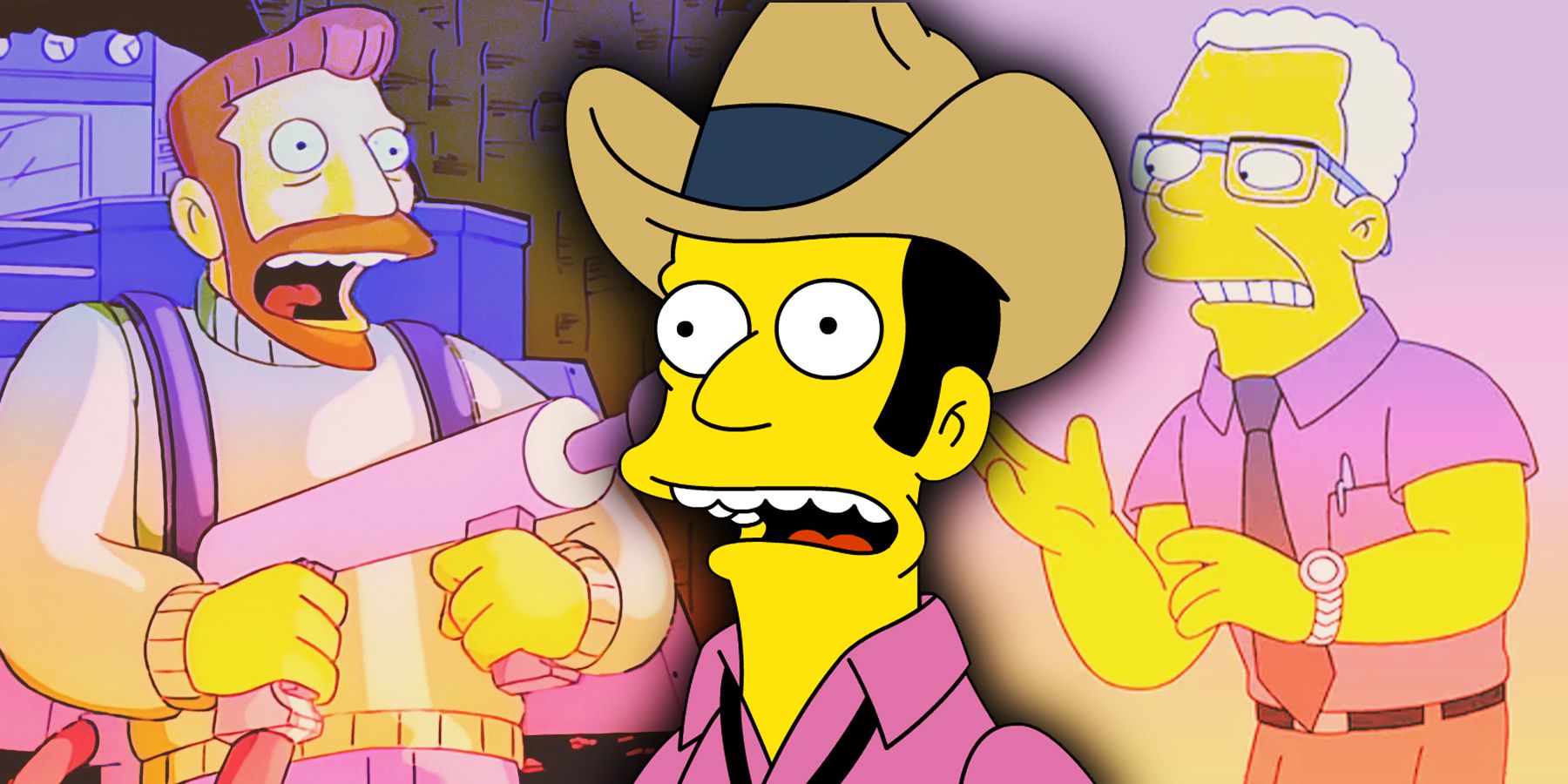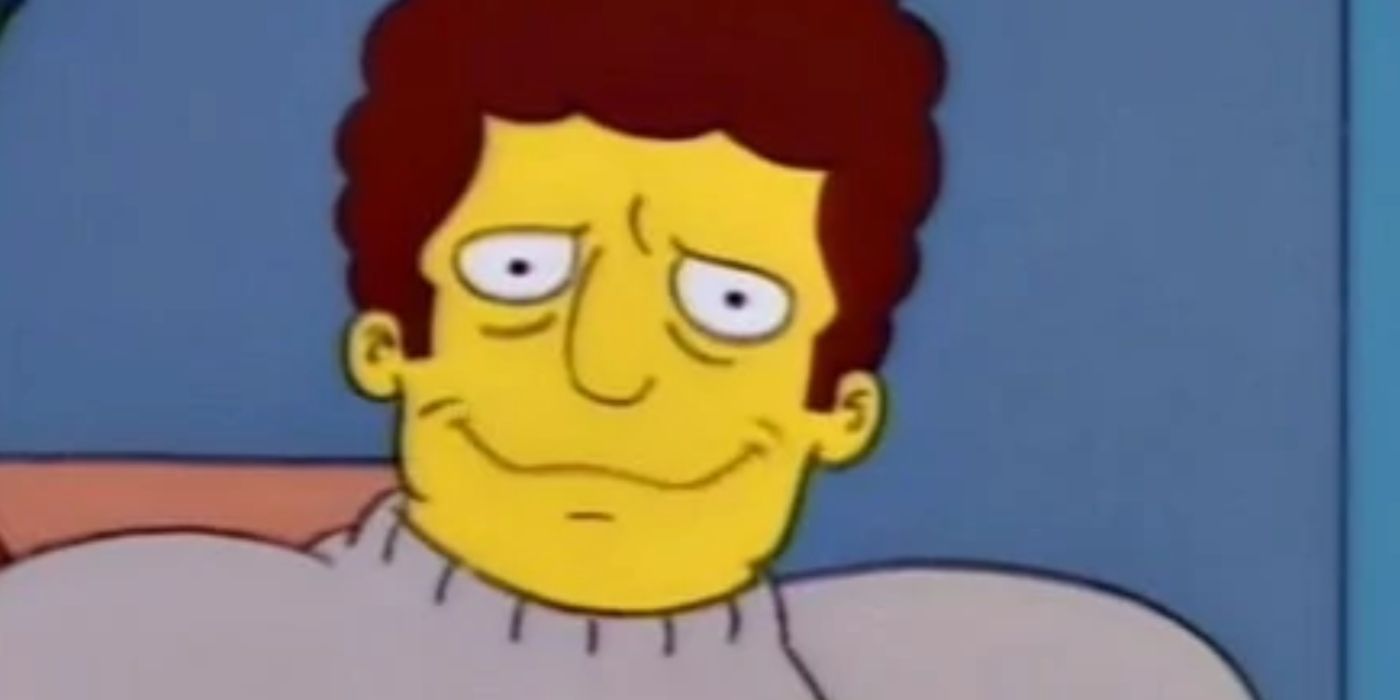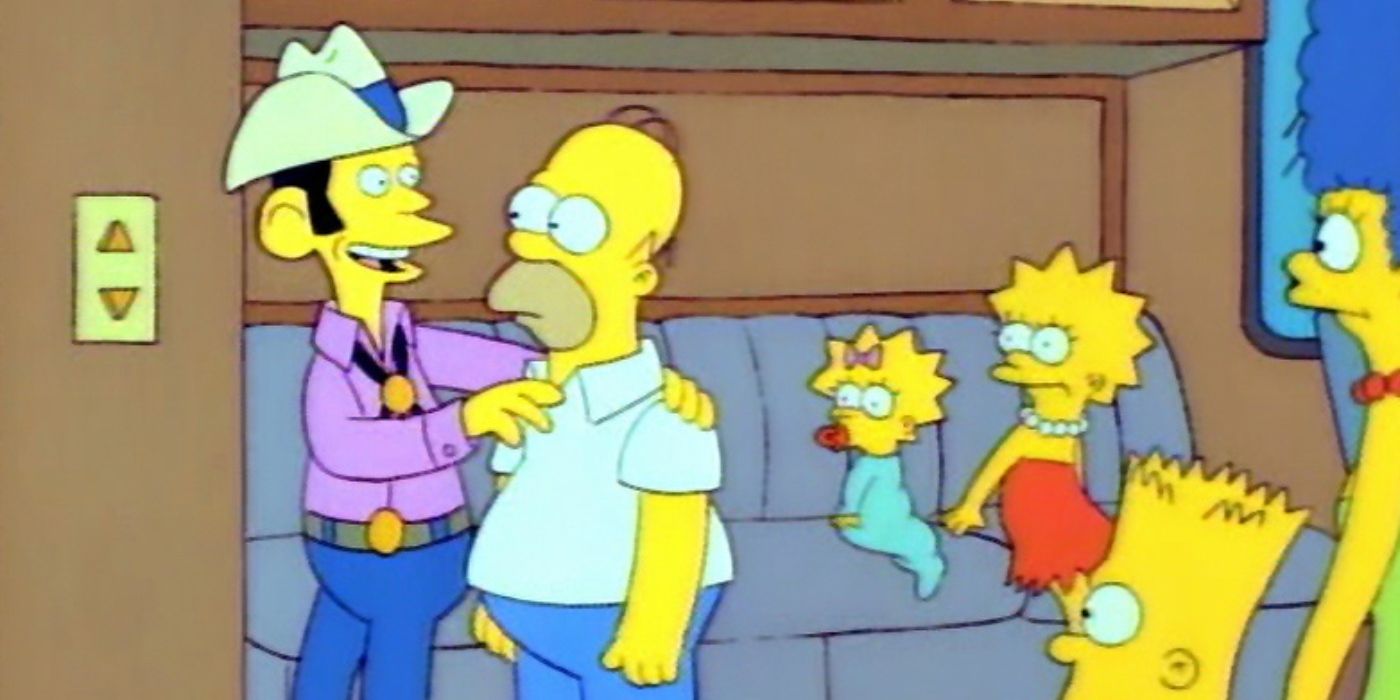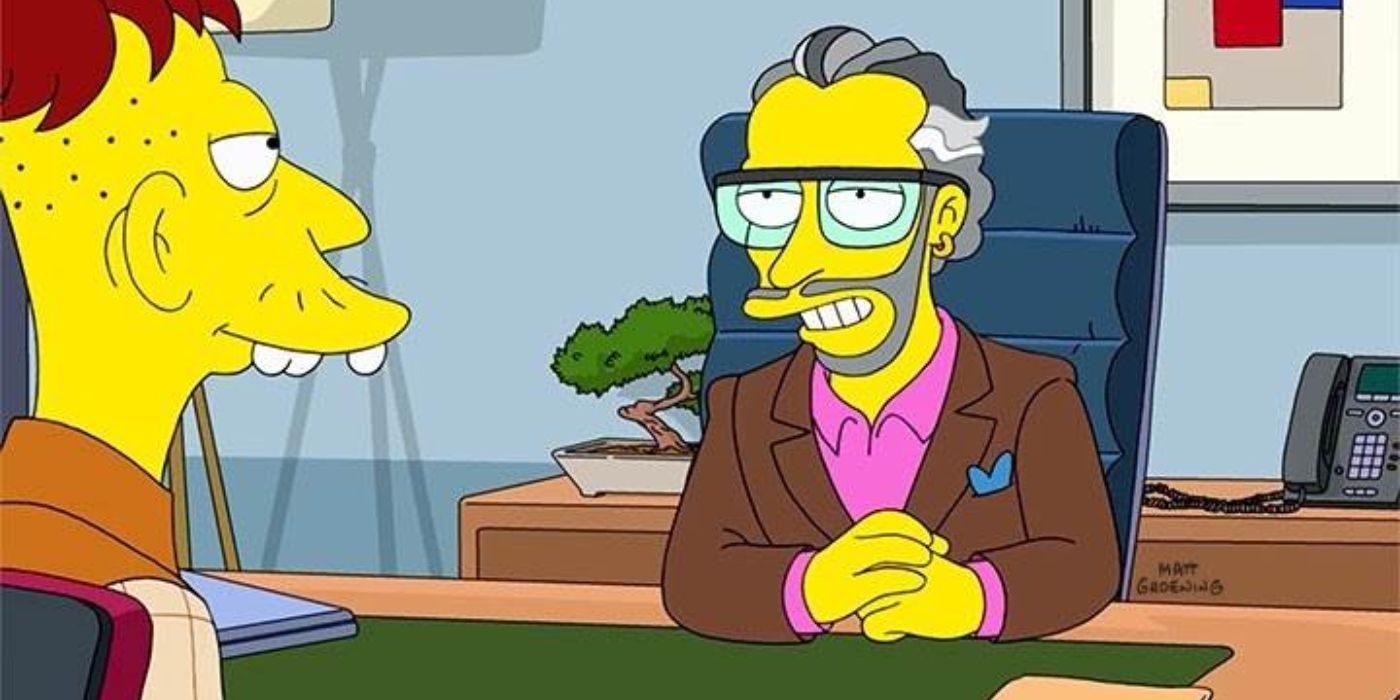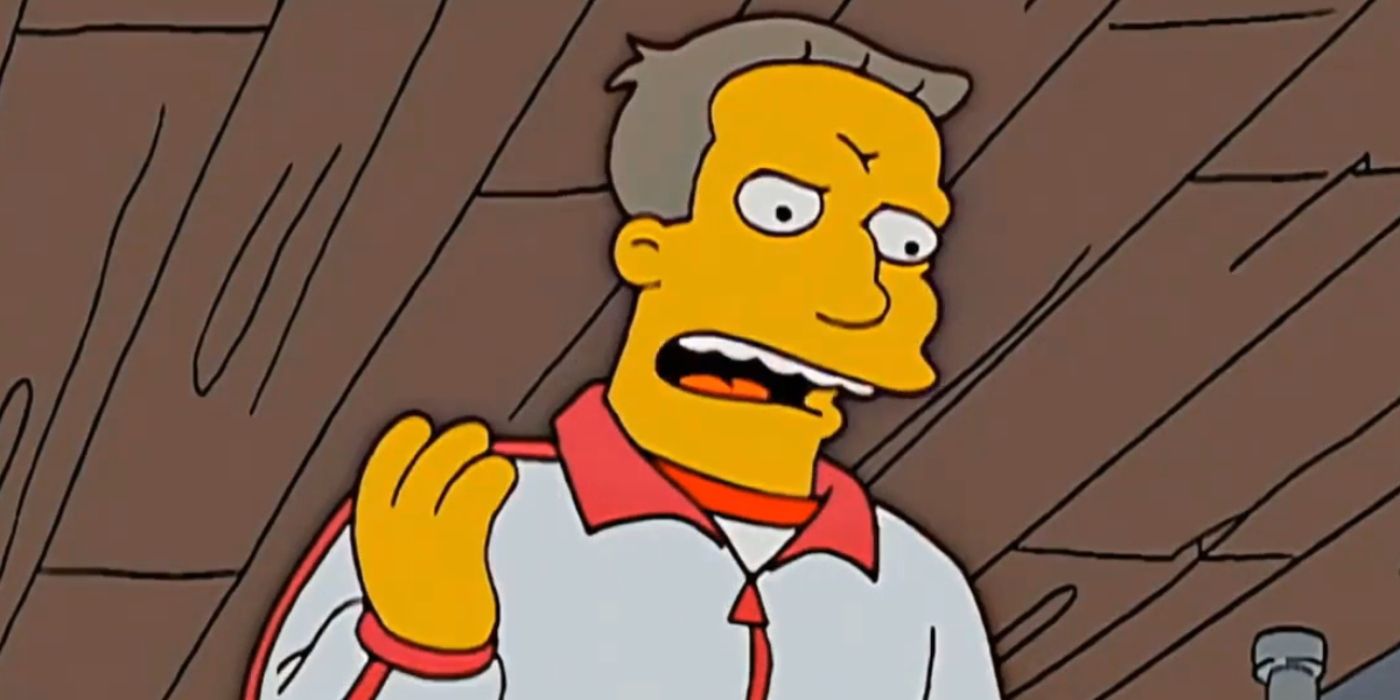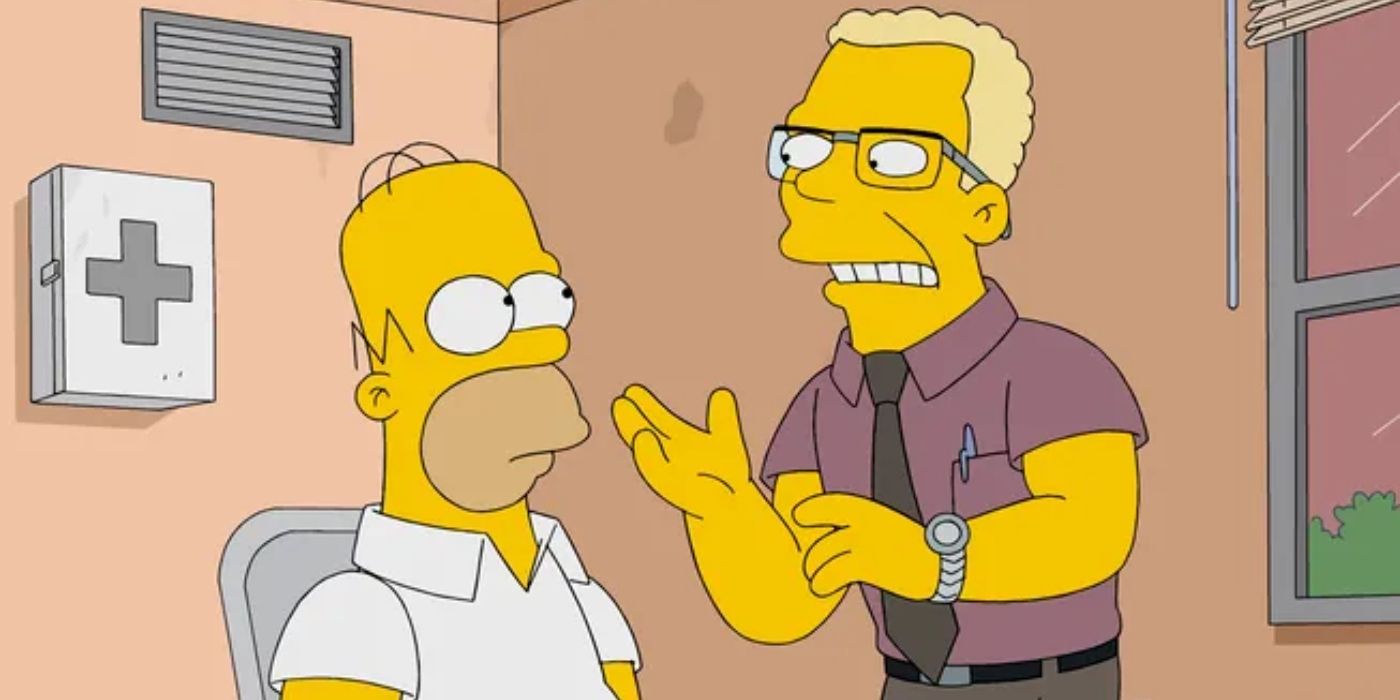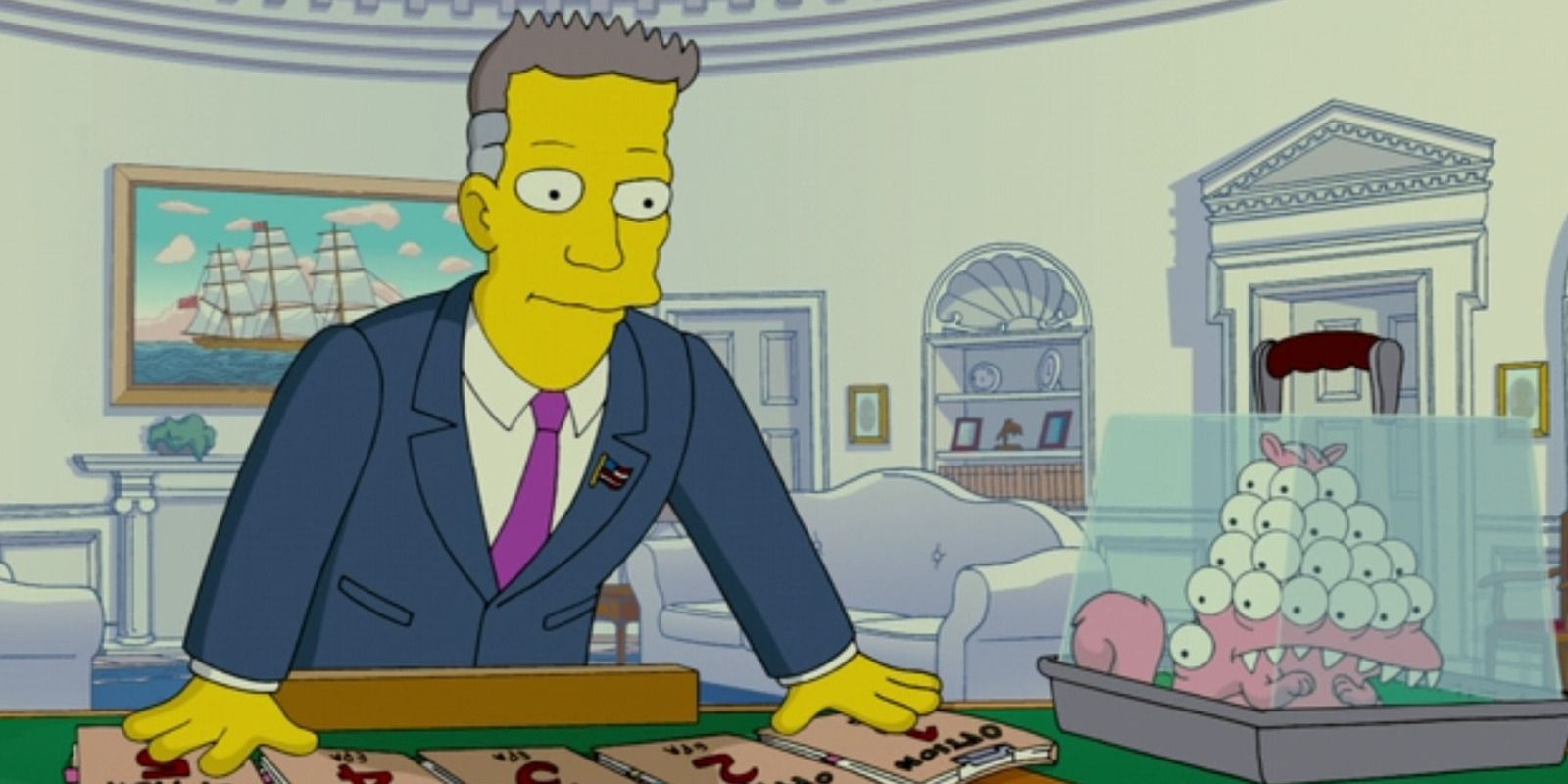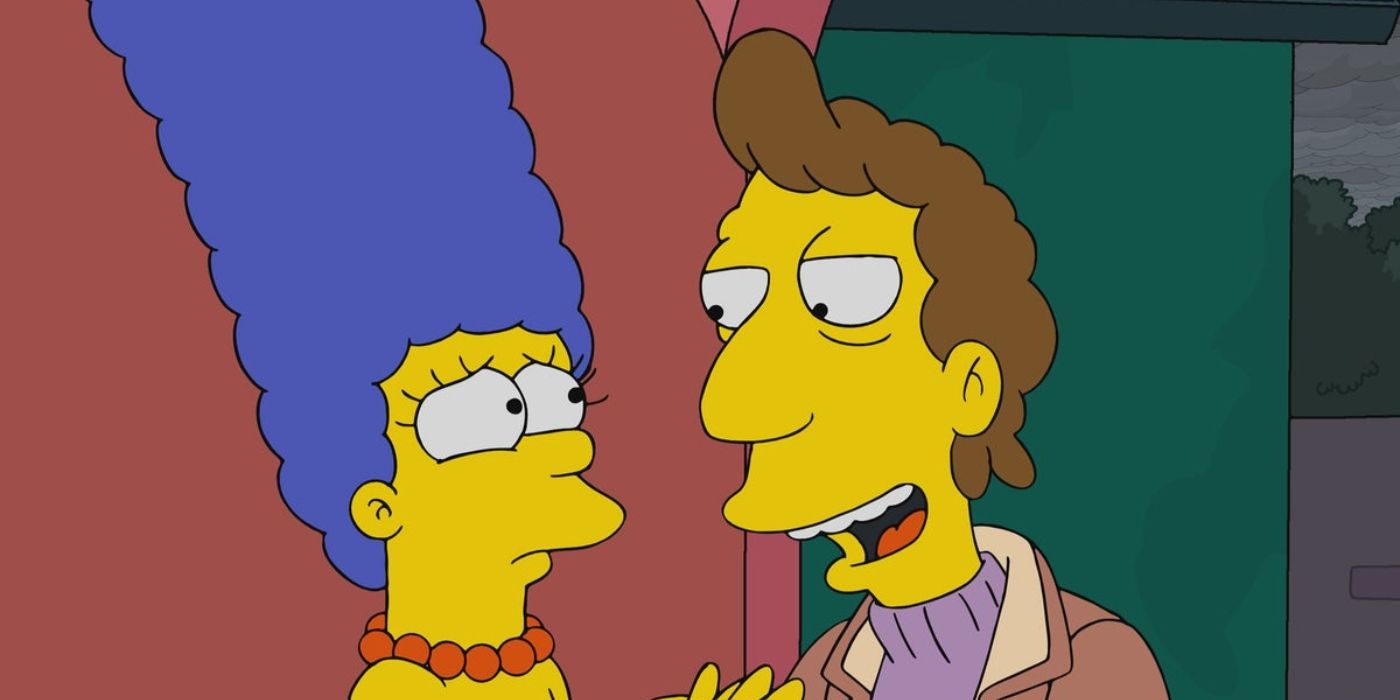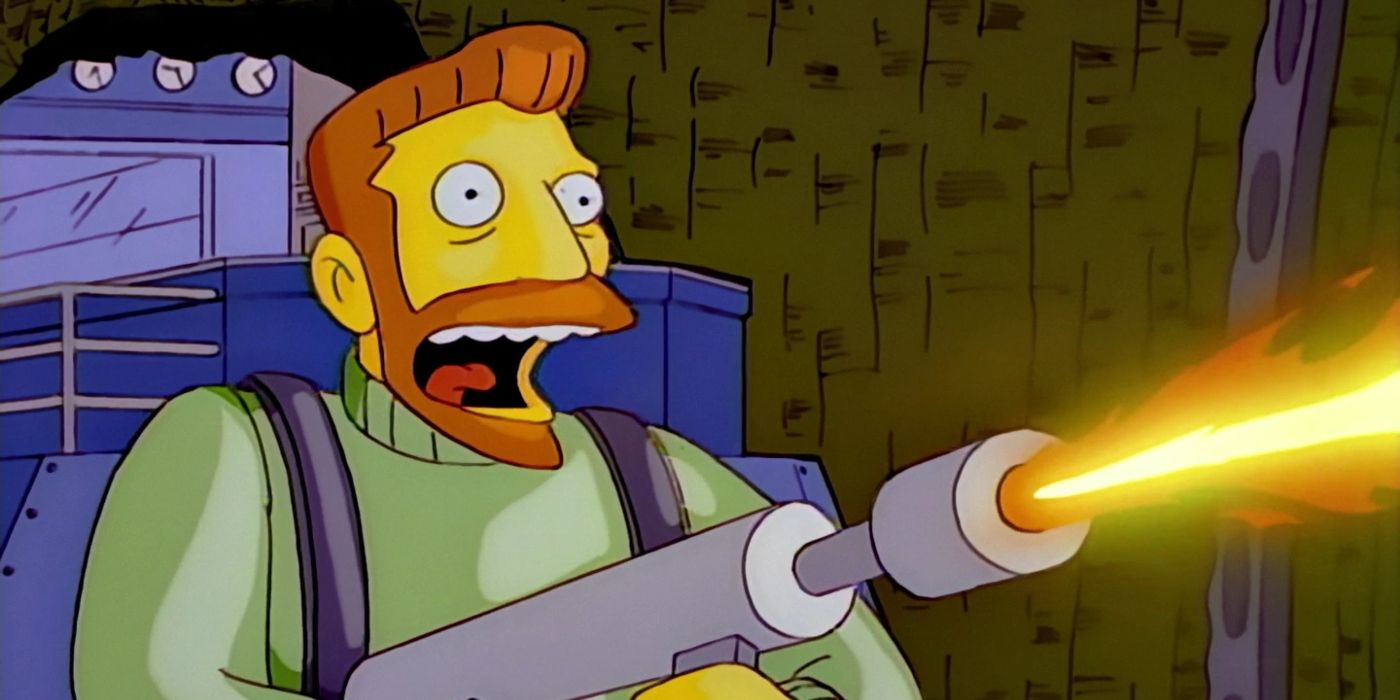The Simpsons has featured hundreds of notable guest stars over the years. Although there are some notable exceptions, most celebrities leap at the chance to play themselves or a minor character in Springfield. Sometimes, those bit players gain a foothold in the show, as happened with Kelsey Grammer and Sideshow Bob. But Albert Brooks -- who, like Grammer, appeared on the show in the very first season -- has never portrayed just one role.
Instead, Brooks appeared multiple times over the course of the show but in different roles -- the only character he played twice was French lothario Jacques, who resurfaced in Season 34's "Pin Gal." The welcome return of Brooks to Springfield presents a great opportunity to dive into his impact on The Simpsons and finally decide which of his many and varied roles takes the cake. Here's all of Albert Brooks' characters on The Simpsons, ranked from worst to best.
Brad Goodman Is A Funny Idea That Doesn't Quite Land
Season 5's "Bart's Inner Child" saw Springfield as a whole embrace New Age self-help guru Brad Goodman's ideas -- including that the town should act more like Bart. A direct riff on author John Bradshaw, the character is amusing in his sanctimonious elevation of Bart's immaturity, but the real comic meat of the episode stems from the chaos unleashed at the subsequent Bart-inspired "Do What You Feel Festival."
Ultimately though, Goodman fades away from the episode after his role in stirring up the town. The problem is that as a result, the character fails to be as uniquely bizarre and silly as the rest of Brooks' characters. Brad Goodman is a funny enough parody of a public archetype that was popular at the time, but isn't fun enough to stand on its own.
Cowboy Bob Is More Compelling Than He Should Be
An RV salesman introduced in Season 1's "The Call of the Simpsons" (as well as Brooks' first appearance on the now at least 36-season show), Cowboy Bob was the most minor of Albert Brooks' characters -- to the point that when the character briefly reappeared in Season 16, he was voiced by series regular Dan Castellaneta. Cowboy Bob was a fairly standard character in theory, and in practice mainly existed as a plot device to set off the camping trip that took up the rest of the episode, much like Brad Goodman.
Cowboy Bob came with such a specific smarminess, however. That and his pronounced (and implied to be false) southern accent made him a far more effective comic character than Goodman. Like Goodman, he was a riff on a cultural archetype: the smooth-talking car salesman. But his sheer commitment to his ploy against Homer and the purity to Brooks' sliminess in the role meant that his appearance was one of the most memorable elements of the episode.
Slick Manager Was a One-Joke Character Done Well
Season 32's "Yokel Hero" featured Albert Brooks as the Slick Manager, a musical agent who stole Cletus as a client after he became an accomplished musician with Homer Simpson's help. Slick Manager was a very minor character, a one-note gag that leaned heavily into Brooks' performance to elevate it. But to The Simpsons' credit, it was a very good joke -- letting Brooks turn a casual greeting into a surprisingly hilarious punchline. Although there wasn't much to Slick Manager as a character, he was a consistently entertaining beat in a solid episode.
Tad Spangler's Weirdness Elevated Him Above Fat Jokes
Season 16's "The Heartbroke Kid" introduced Tad Spangler, who ran the Serenity Ranch weight loss program. After Springfield Elementary placed vending machines on campus, Bart went through massive weight gain and was forced to attend Serenity Ranch by his family. The center was overseen by Spangler, who proved to be an aggressive but committed weight loss counselor.
Only appearing in the episode's third act, Spangler didn't get much depth or time on-screen, but his polite apologies after roaring at a co-worker over a misprinted sign created an entertaining contrast for Brooks to latch onto. Jokes about Bart's weight distracted from his more bizarre riffs, but he was elevated by the sheer strength of his final chat with Homer: as the episode ended, the pair bickered about sharing a burger.
Dr. Raufbold Was a Great Sketch Concept in the Middle of an Episode
Season 26's "Bull-E" forced Homer to adhere to a new anti-bullying law instituted by Springfield after he was arrested for his casual abuse of Ned Flanders. Dr. Raufbold was the therapist assigned to Homer's therapy group. Though his presence was a digression from the episode's eventual focus on Homer and Flanders' friendship, Raufbold was the center of an effective and silly comedy sketch.
As he spoke to the group about their anger issues, Raufbold peeled back more and more layers of his own increasingly alarming history. Brooks sold that with such sincerity that it quickly became hilarious watching a therapist who couldn't help himself from becoming way too intense. None of it detracted from his ability to immediately read his patients and expose their vulnerabilities either, giving the character a comic effectiveness that bolstered his strange intensity.
Russ Cargill Was The Simpsons' Greatest Villain
Russ Cargill was the central antagonist of The Simpsons Movie. A high-ranking member of the EPA who replaced the film's original villain, Cargill used the intense pollution in Lake Springfield as an excuse to shut down the town and even try to destroy it. His plans were unintentionally assisted -- and eventually prevented -- by Homer Simpson, and the film ended with Maggie taking the villain down with an unexpected rock to the head.
Cargill was one of Brooks' most straightforward characters: a big supervillain with the active manic personality and drive to do something about it. He was best when hinting at the more chaotic side of his personality, as the professional sheen Brooks is so good at creating barely hid one of the show's most genuinely villainous personalities. Brooks nailed the chance to go big, and in doing so matched the high energy of the show's big-screen debut.
Jacques Set The Stage for One of The Simpsons' Biggest Stories
Introduced in Season 1's "Life in the Fast Lane," Jacques was Homer's first rival for Marge's attention. After becoming frustrated with her husband over her birthday being a clear excuse to buy himself a bowling ball, Marge briefly took up the game. But while at the bowling alley, she was instructed by Jacques -- a parody of the lusty Frenchman who found a solid balance between being comically blatant and oddly engaging.
Jacques was most notable for being one of the earliest examples of one of The Simpsons' central throughlines: that Homer and Marge's marriage wasn't perfect. But the character wouldn't have worked without Brooks, and Jacques' return in Season 34's "Pin Gal" gave him a hint of melancholy to contrast against his comical scumminess and French jokes. That's another of the show's many examples of balancing bittersweet beats with broad comedy.
Hank Scorpio Is Albert Brooks' Best Simpsons Character
Season 8's "You Only Move Twice" was one of the best episodes of The Simpsons, and Hank Scorpio was a big part of its success. Introduced as Homer's new boss at Globex, Scorpio was everything Homer would want in an employer: supportive, friendly and open. It wasn't long before Homer fit right in at the company, completely unaware that Scorpio was secretly a James Bond-style supervillain bent on world domination.
Scorpio got more screen time than any other Brooks character outside of Cargill and Jacques, and Brooks used every second of it to his advantage. Scorpio was a great comic invention by The Simpsons' writers, but Brooks was able to shift from unassuming to diabolical and back again with such speed that it remains his best performance -- and one of the greatest guest spots' in the show's entire history.

